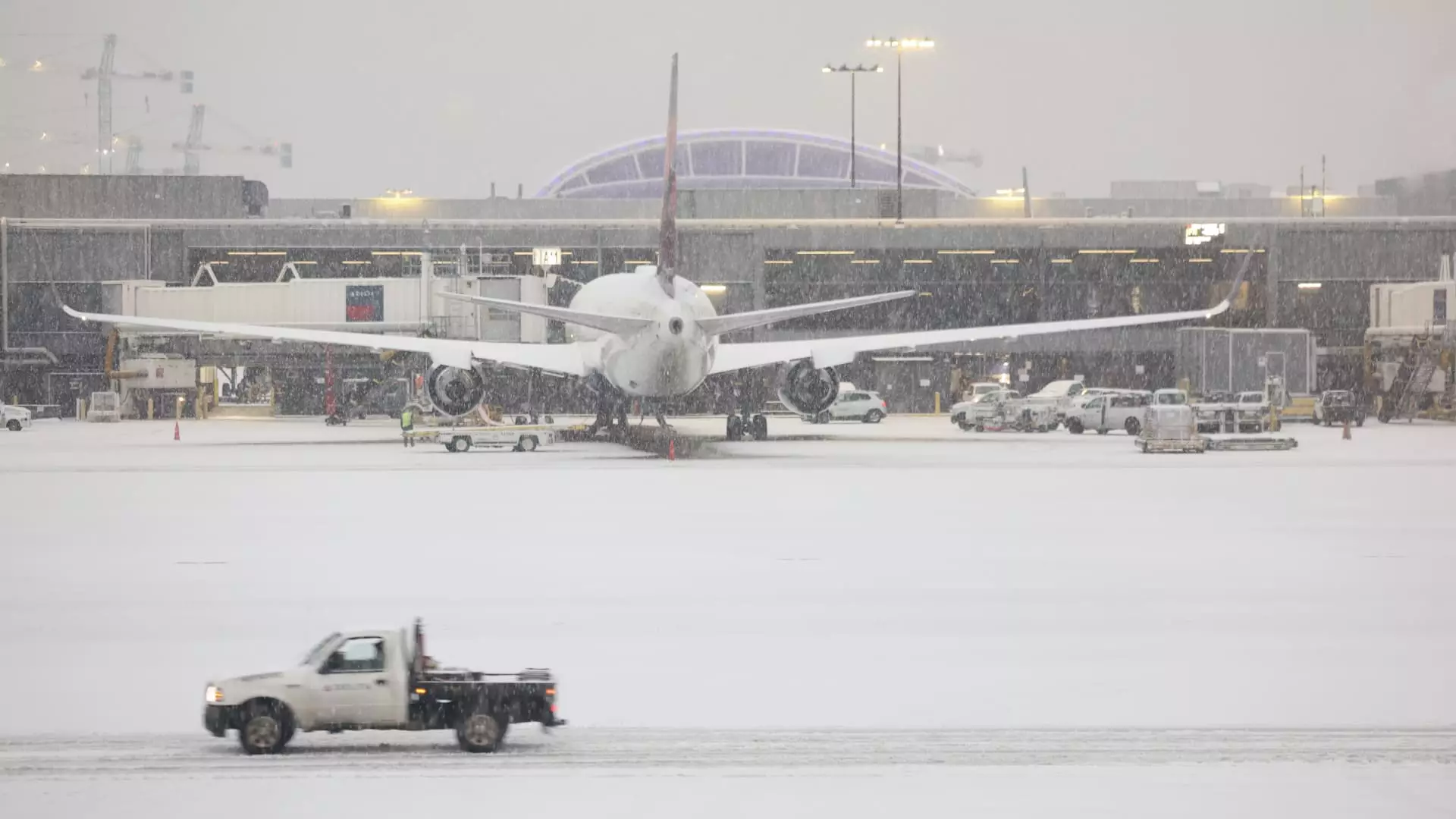Friday saw a significant disruption in air travel as winter storms swept across the Southern U.S., leading to the cancellation of over 2,000 flights. In addition to these cancellations, more than 2,000 flights experienced delays, creating a ripple effect that stranded passengers in various terminals. The weatherfront not only affected scheduled departures but also complicated ground operations at several major airports, notably Hartsfield-Jackson Atlanta International Airport (ATL), which serves as Delta Air Lines’ main hub and is recognized as the busiest airport in the world.
The turbulence began when a Delta Air Lines Boeing 757-300 aborted its takeoff due to an engine issue. The airline’s flight 2668 was set to travel to Minneapolis-St. Paul (MSP) but had to be halted moments before liftoff, resulting in a mass evacuation of 201 passengers and seven crew members via emergency slides. Delta issued a statement affirming that the flight crew adhered to established safety protocols. “Nothing is more important than the safety of our people and customers,” they emphasized, acknowledging the inconvenience caused to passengers and expressing a commitment to assist them effectively.
The effects of the winter storm were stark, particularly in Atlanta, where nearly 900 flights were canceled, accounting for an alarming 40% of the day’s scheduled departures and arrivals. Flight trackers like FlightAware reported that the ground stop was enacted to prevent an accumulation of grounded aircraft, which could exacerbate the chaos. Additionally, American Airlines’ hubs, Dallas/Fort Worth International Airport and Charlotte Douglas International Airport, faced substantial setbacks. Together, they canceled over 1,000 flights, further complicating the travel landscape as passengers looked for alternate routes.
In light of the severe weather conditions, major airlines including Delta, Southwest, and American swiftly responded by waiving change fees and fare differences for affected customers. They aimed to alleviate some of the distress caused by the cancellations and delays. The proactive approach, while essential for customer service, highlighted broader issues related to travel disruptions in winter months, where weather patterns can often wreak havoc on operations.
As air travel continues to evolve, airlines and airports must enhance their contingency plans to deal with severe weather. The incidents from Friday serve as a reminder of the vulnerability of flight operations during harsh winters and the importance of effective communication and support for travelers. Preparedness not only includes better real-time updates for affected customers but also improving response strategies for in-flight incidents that may threaten safety. The need for airlines to prioritize safety while providing compassionate service remains paramount, particularly in the face of unpredictable weather challenges.

